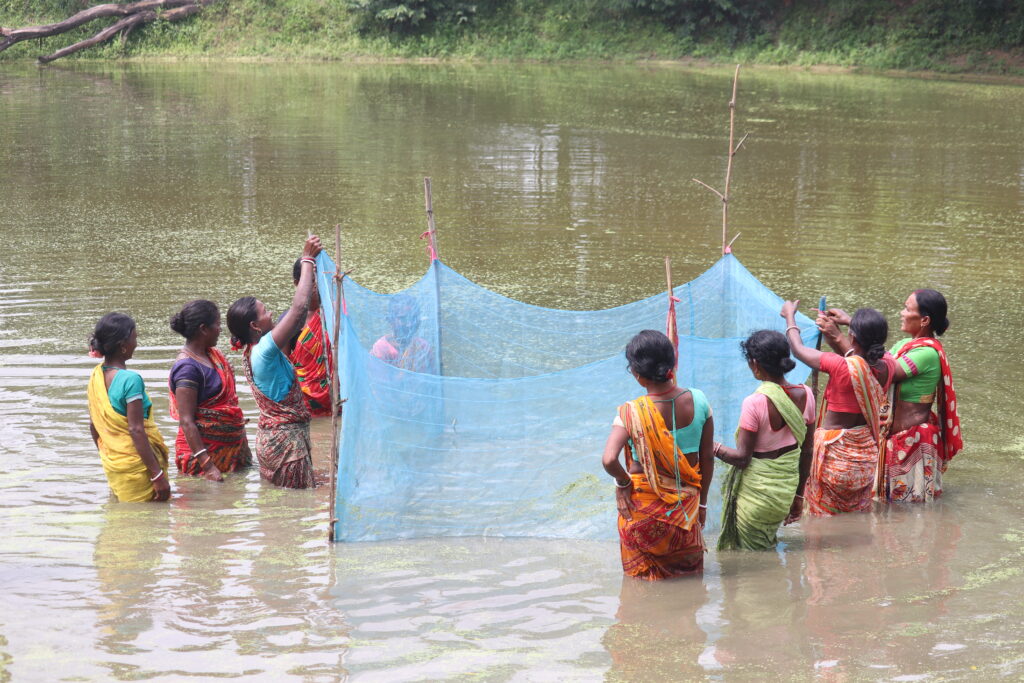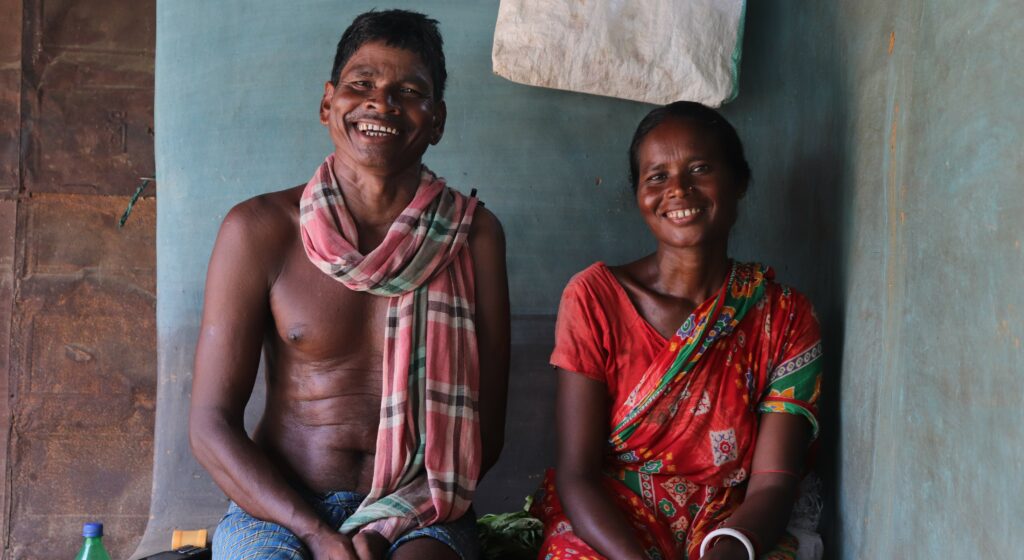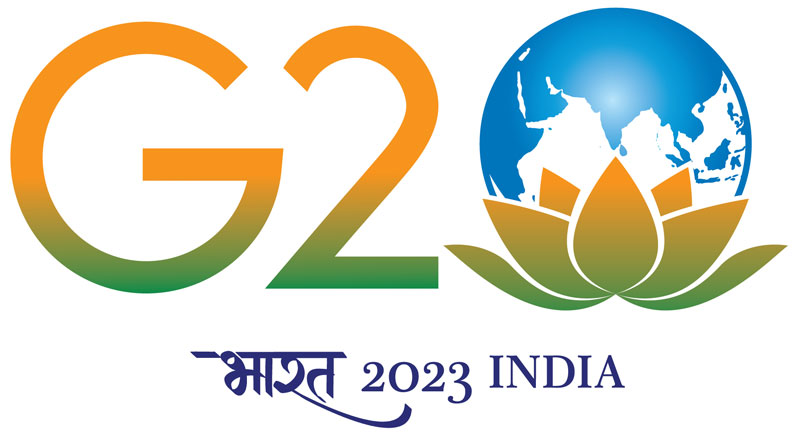Reported by: BRLF Communication Team
The Usharmukti Project, a mega-watershed program, was initiated by the MGNREGA Cell, Panchayats and Rural Development Department, Government of West Bengal, in collaboration with Bharat Rural Livelihoods Foundation (BRLF) and 6 Civil Society Organisations (CSO) with PRADAN as the Lead CSO facilitating the overall project. Usharmukti means “Salvation from Bareness”. Covering six western districts, 54 blocks, 431 Gram Panchayats, 8781 villages, and 2053 micro watersheds, the project unfolded against a backdrop of rural challenges, with over 90% of the population comprising Scheduled Tribes (ST), Scheduled Castes (SC), and marginal farmers, facing a myriad of deprivations and poverty.
A significant focus of the Usharmukti Project was on the construction of new watershed structures and the rejuvenation of existing water bodies. The total volume of water restored in different Water Harvesting Structures has been 17,478 Ham/Year, laying the groundwork for transformative changes in the lives of the communities. Here, we will look at two stories to see how farm ponds have improved people’s livelihoods.

Empowering Women Through Collective Fish Farming
Dakshinkendbana village in the Bankura district witnessed a remarkable turnaround in the lives of its 24 households. High rates of migration were once the norm, as villagers sought work in distant cities. However, the Usharmukti Project, with a primary focus on empowering women, intervened. In this village, primarily women took up collective Fish Farming or Pisciculture. The initiative not only boosted the income of numerous families but also acted as a powerful deterrent to migration. Through the cultivation of fish within the village, a sustainable source of income was established, creating a ripple effect of positive change.
Reuniting Through Farm Ponds
In the heartwarming tale of Radhanath and Adari Munda, the challenges of living apart were replaced by the promise of a shared future. Hindered by the lack of opportunities in their village, Radhanath had been compelled to work in a distant city, causing strain on their lives. The Usharmukti Project, recognising the potential for change, facilitated the construction of a farm pond under MGNREGA. This simple initiative became the foundation for pisciculture for the couple, not only providing an additional income source but, more importantly, allowing Radhanath and Adari to reunite and live together.

As the Usharmukti Project continues to unfold, these stories stand as a testament to the transformative power of the project, especially in terms of watershed development. The journey from bareness to abundance is marked by empowered women, thriving fish farms, and reunited families, showcasing the potential for positive change when communities come together for a common goal.

